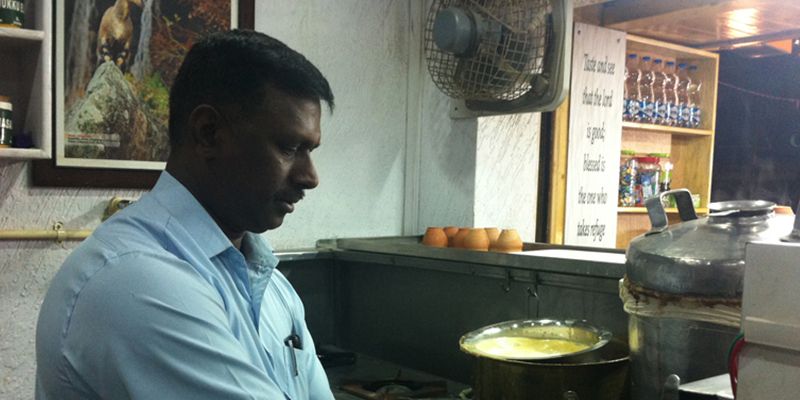This school-dropout chaiwalla of Sharon Tea is taking on the likes of Chai Point
After expanding to three branches in Bengaluru, Muniswamy Daniel dreams of taking his humble Sharon Tea stall to corners of India. Will this MSME be able to disrupt the space that ‘startup disruptors’ are increasingly crowding?
As a conversation starter, let’s begin by counting the number of roadside tea stalls in India. Impossible, right? For there are as many of these hole-in-the-wall tea stalls as there are stars in the sky. Countless.
How then does a school-dropout tea vendor rise above this stiff competition and be noticed? When Muniswamy Daniel started his first tea stall in 2007, it was literally on a wing and a prayer.
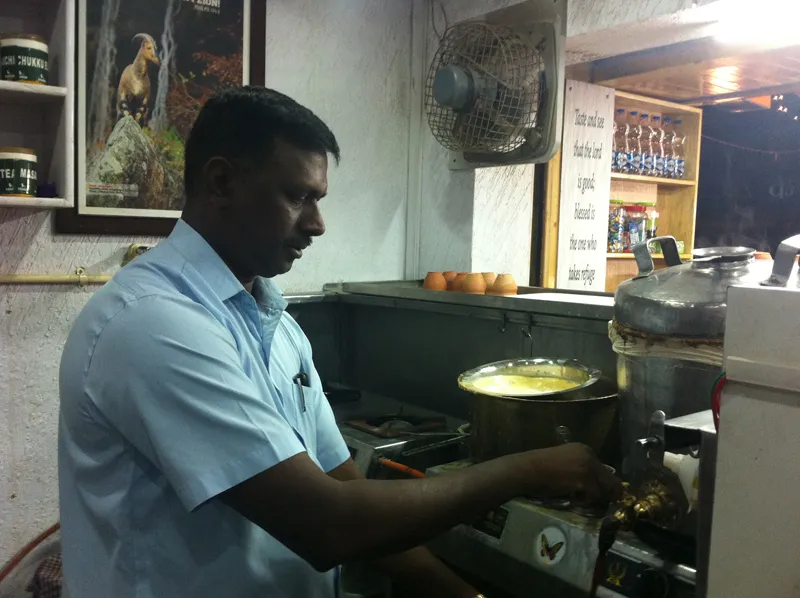
Today, his tea stall, Sharon Tea, has a dedicated clientele, and in the past six months has expanded to three branches in Bengaluru. He sells upwards of 1,000 cups in a day at his first branch that he set up at the corner of Thippasandra Road in Indiranagar. The second store that started a couple of months ago near BDA Indiranagar sells over 500 cups daily, and the newly-launched branch at the ITC factory has started to record 200 cups in a day.
The price of the each cup has increased from Rs 2.50 to Rs 10.
Forty-three-year-old Daniel, who had leased his house for Rs I lakh to start his first tea stall, clocked a revenue of Rs 35 lakh last year. Not much, if you look at the dollar-funded startups who are using technology to disrupt the Rs 33,000 crore tea market in India. A market that is growing at a pace of 15 percent annually. But remarkable, nonetheless.
A leap of faith
In India, where tea is perhaps the most powerful elixir that runs the country, it is no surprise that the tea retail market is largely unorganised, with more than 90 percent consumption through small vendors like Daniel’s Sharon Tea.
But what separates Daniel’s business from the thousands of other tea vendors like him is not only that he has been consistently rated top in Zomato or that he offers more than 100 varieties of tea preparations, but the fact that he is dreaming big. He refuses to be content with viewing his business merely as a means of survival. Despite the many odds, including the fact that he is not even high-school pass, Daniel wants to expand his business to other states as well.
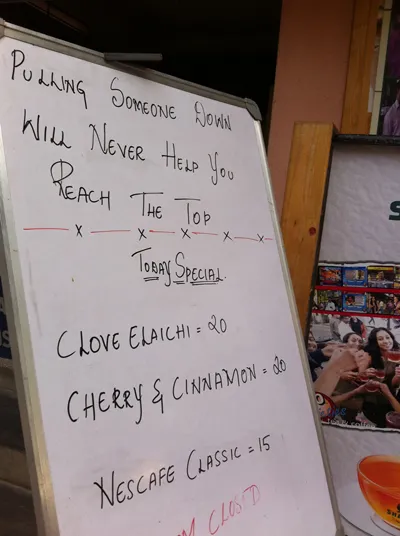
A couple of years ago, he had made that leap of faith and failed miserably losing Rs 10 lakh in the process. “I wanted to open a store like Café Coffee Day,” he tells me when I meet him outside his new stall in Indiranagar. “The floor above my first stall was up for grabs so I took it up. I wanted to start a café where I could serve food as well as my special teas,” he says.
However, despite the crowd of customers at his tiny tea shop, there weren’t many takers for his café, and he had to shut it down in a few months. “I lost Rs 10 lakh. My wife and family were upset. They felt that I should not think of expanding and be happy with what we were already making,” adds Daniel.
In for the long haul
By then, Sharon Tea was a well-established name among the locals as well as tourists looking for a slice-of-life element in their trip to the city. They had faithful customers who would give constructive feedback as well as spread the good word through blogs and reviews on Zomato.
But the loss of so much money pulled his morale down. “I was frustrated and wanted to shut down the shop,” says Daniel as he hands me a Sharon Special Tea, his store’s signature item. A regular church-goer, Daniel would often seek his pastor's advice. “He told me to have faith and stick it out,” says Daniel. And he did. “This year, I have opened two stores. I am now looking to open more stores outside Bengaluru,” he adds.
Tea and gratitude
Daniel has help from his brother, who manages the first store, and a friend, who manages the third one, while his children look after the second one. Daniel is in charge of the procurement of ingredients, hiring and training staff, and business development. Though he has a staff of 13 at the moment, Daniel says there was a point when the people he would hire would leave without any notice. “That continues to remain a big challenge for me,” he says, adding that he relies on his family for support.
Surprisingly, Daniel is a ‘teatotaller’. He does not drink tea. Despite that, he took up this challenge because he always wanted to start a business. He learned by trial and error and would refine his recipes following suggestions from his customers. “Customers would come and tell me that they have a bad cold and if I could give them something for it. I started experimenting with ginger, pepper, herbs and other ingredients for cold and coughs and even diabetes,” says Daniel.
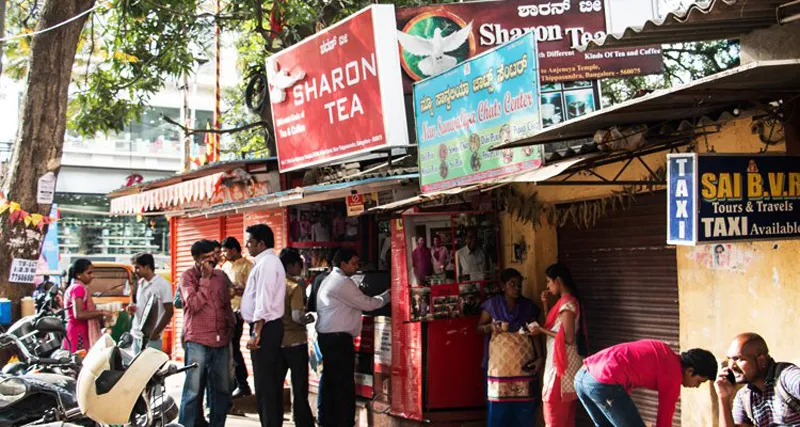
“I would constantly pray to God that he should keep the customers coming in,” he says, adding that prayers were the only thing he relied on and still does. That and his amiable disposition coupled with a positive attitude with his customers became his unique selling proposition. And as any connoisseur of tea will tell you, these fine attributes added to the taste of the brew.
All the time that we stood outside his stall chatting, he was interrupted many times by customers inquiring about his well-being. The only change they must notice in Daniel now is perhaps the relatively expensive smartphone peeping out of his tiny breast pocket.
Business lessons
Daniel was a driver before he decided to start his own business. “I was drawing Rs 6,000 a month as a private driver,” he says. He gave up his job after he would be called to work even on a Sunday. “I could not miss church on Sundays and since there was no alternative I quit my job,” he adds with a smile. At that time, Daniel’s brother was running an electrical shop where Sharon Tea’s first stall is standing now at Thippasandra. “My brother was planning to shut that and he suggested that I start a tea shop,” Daniel tells me.
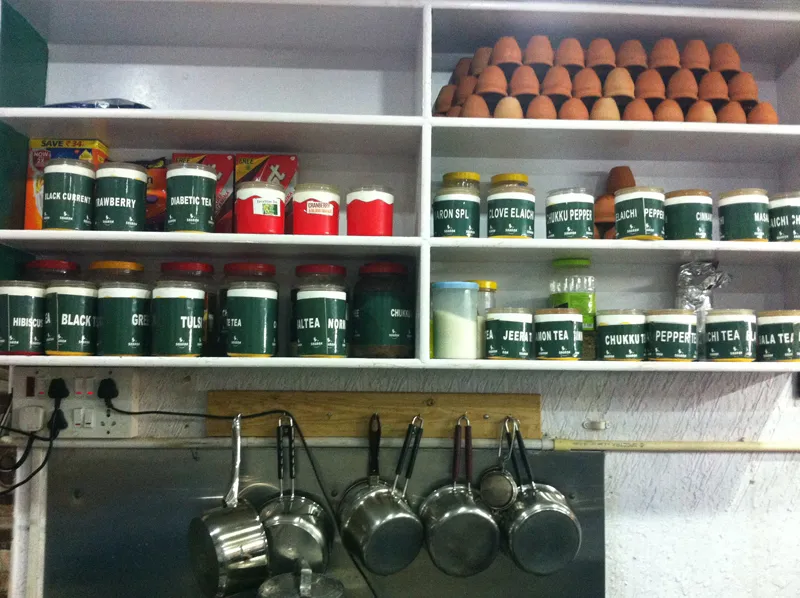
Harvard-educated Amuleek Singh, CEO and Co-founder of Chai Point, who made selling tea cool and started a trend of sorts for startups to look at this humble product as a viable business, admits that he would hang out at tea stalls in the bylanes of Bengaluru and Delhi to understand the dynamics at play. In a conversation over the phone, he says,
“Tea is a very powerful beverage in India where tea drinking is almost like a ritual. But while observing the roadside tea stalls, I gathered that hygiene was a big issue.”
Amuleek, who secured $10 million in a new round recently, also wondered how the business could be scaled. “In the case with roadside vendors, I noticed that they were stuck with the same clientele, and were unable to grow,” he says. Amuleek, who worked behind the tea counter at his startup making tea and interacting with customers, realised that to scale he had to make sure that there was consistency in the tea served in all the outlets. A single-minded focus was required as far as the product was concerned. “We were clear we wanted to be primarily a beverage company,” he says, adding that they avoided including any food items, which did not go well with tea and would add to the overhead cost.
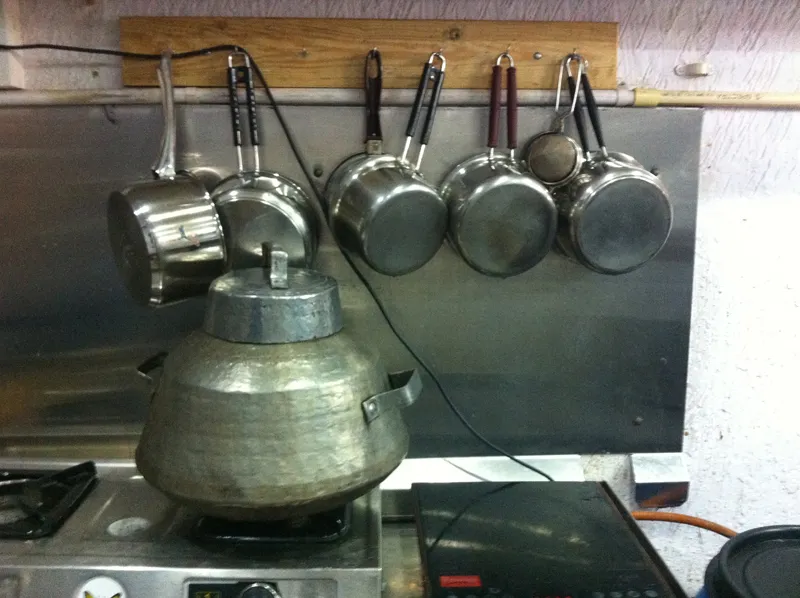
Looking at how Daniel is going about operating his business, it would seem he is on the right track. He has used some state-of-the-art equipment and modern techniques at his new outlets.
He allowed me a sneak peek inside his ‘kitchen’. The first thing I noticed was how clean the place was. Everything was in its designated space. Daniel has invested in modern boilers and tea dispensers that allow for a smooth tea-making process.
Because he has more space here compared to his first stall, Daniel has introduced snacks that go well with tea, including hot Maggi. His children, Joshua, 16, and Rebecca, 18, manage the new store. Every morning, Rebecca pulls out a ‘quote of the day’ either from the Bible or Google for customers to ponder over as they sip their tea. The flavours range from dum chai, ginger lemon chai, hibiscus tea, elaichi chai, and even strawberry tea.
Always time for tea
Daniel wakes up at four every morning. He opens the Thippasandra stall at 5.30 am and hangs around till 7.30 am to help kickstart the day. He then goes to the second outlet, which his children open at 6.30 am. He is there to sort out any hitches so that they have a smooth day. During his time at the stalls, he takes stock of all the concoctions needed for the special teas, and if needed mixes the herbs and masalas to replenish the stocks.
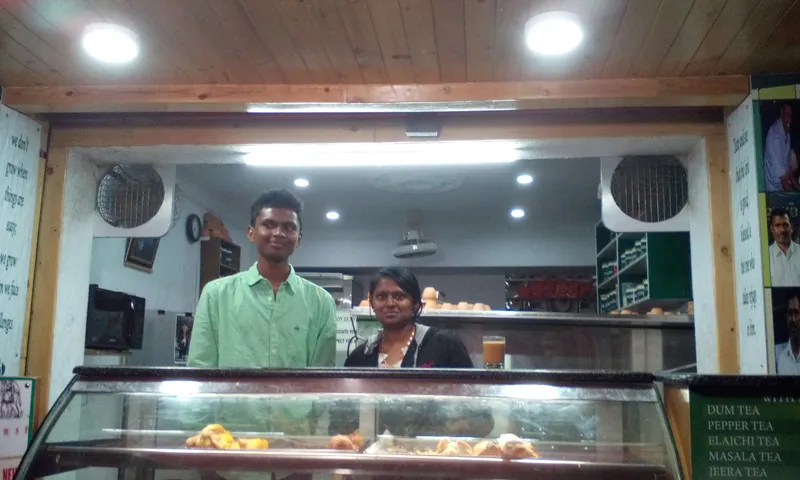
“The third stall opens a little late and I go there last. During the day, I am mostly on the road for purchases though I go home for a short nap, following which I begin my evening rounds of all the stalls again,” he shares, adding that his day ends at one in the morning.
Daniel has trained chai masters in all his outlets. Though his brother and children are now adept at making tea that is consistent, he has also trained a few staff.
“The staff come as cleaners, then move on to serving tea, and after they have spent some time learning the ropes, I show them how to make tea.”
Named after the Biblical holy land, Sharon Tea has become the place where there’s always time for tea. When the world takes a pause as you allow the ginger-infused milky brew to work its magic, returning to the humdrum of existence replenished. More power to Daniel and his tribe.
Postscript
Renuka Aradhya, Founder and CEO of Pravasi Cabs, who himself rose from the very bottom to build a taxi company standing up to the likes of Ola and Uber, has taken Daniel under his wings. He took time out to visit Daniel at his new stall, and told me, “I can understand how such people struggle to achieve something. I can understand their pain.” According to Aradhya, “Daniel needs a little guidance on how private limited companies work, otherwise, he is more than capable of taking his business far.”
(Pictures by the author)






